Post
A catch
Save a catch to start your fishing logbook. You will be able to to share it with the community if yo want!
A fishing trip
Post an ad to go fishing with other fishermen
Save a catch to start your fishing logbook. You will be able to to share it with the community if yo want!
Post an ad to go fishing with other fishermen
Share a thought, a question with the community
My favorite cities
×Join our 3 fishermen in Boulder in Boulder. The fishing forecast is currently 2.7. The most caught fishes here are the apache trout, the white bass, the razorback sucker and the atlantic sturgeon. Come try the most famous fishing techniques like the big game fishing, barracuda trolling, angling - using floats or support fishing for bass.
Our fishing forecast of Boulder indicates the best time to go fishing in this city.
The Apache trout
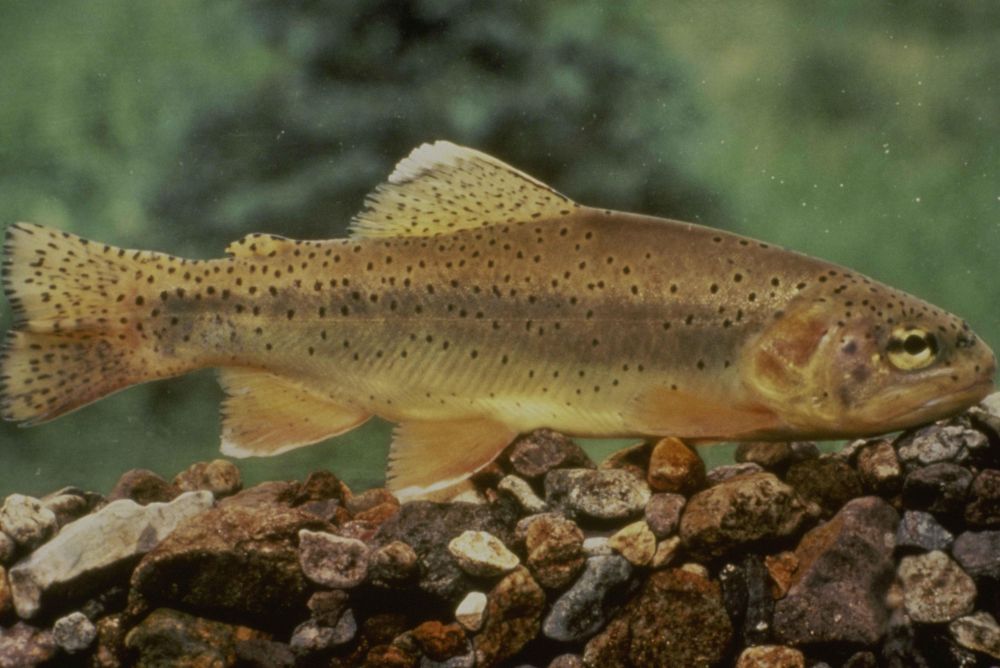
The Apache trout belongs to the Salmonidae family. The Apache trout is 15 to 61 cm long and weighs 0.2 to 2.7 kg. It rarely exceeds 25 cm but can reach up to 40 cm in its natural headwaters. It breeds from May to June. Fishing for Apache trout is prohibited all year round. Apache trout are yellowish gold in color with a golden belly and have medium sized dark spots, uniformly spaced, which can extend below the lateral line and over the dorsal fins and tail. The top of the head and back are dark olive in color, and it appears to have a black stripe/mask through each of its eyes, thanks to two small black dots on each side of the pupil. There may be a throat mark under the lower jaw, ranging from yellow to gold.
The Apache trout is a famous fish you can catch in Boulder.The White Bass
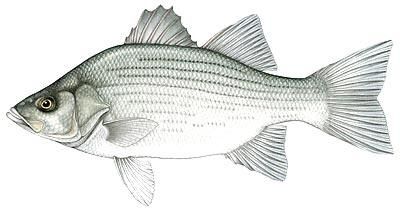
The White Bass belongs to the Moronidae family. Its maximum length is 46 cm and its maximum weight is 3.2 kg. Its maximum lifespan is 15 years. Spawning takes place from March to May. The best time to catch it is from mid-April to mid-May. As with other true basses, the dorsal fin is clearly double, separated into thorny and soft-raked parts. White Bass is a silvery shade ranging from dark grey or black on the back to white on the belly. Several incomplete lines or stripes extend horizontally on either side of the body. Adults look like a young striped bass, and the two are often confused. However, the striped bass has two distinct pieces of teeth on the back of the tongue, and the white wolf has one piece of tooth. The striped bass has two points on each cap, unlike the white bass which has one, and the second spine of the anal fin measures about half of the third spine of the striped bass, while it is about two thirds the length of the third spine in White Bass.
The White Bass is a famous fish you can catch in Boulder.The Razorback Sucker
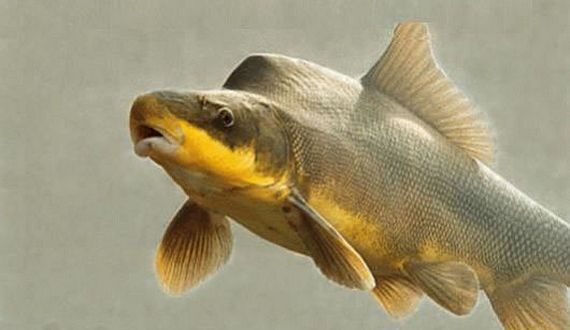
The Razorback Sucker belongs to the Catostomidae family. It is a relatively large catostomidae, reaching more than 91 cm in length and weighing 5 to 6 kg. It has a lifespan of 50 years. It nests from January to June. It cannot be fished because of its status as an endangered species. Razorback suckers are similar to other Catostomidae, with the exception of two main characteristics. The most characteristic features of the razorback sucker are a pronounced edge made of neural and internal bone that extends from the head to the dorsal fins, as well as elongated filaments on the gills. Females have a lower keel. Well-developed filaments are made for zooplankton feeding. It has a long snout, a long rounded head that is ventrally compressed and a ventral mouth with a split lower lip. There is 12 to 15 rays on the dorsal fin and the anal fin has 7 rays. Pelvic and anal fins are longer in males. It has an almost straight lateral line with 68 to 87 scales.
The Razorback Sucker is a famous fish you can catch in Boulder.The Atlantic Sturgeon
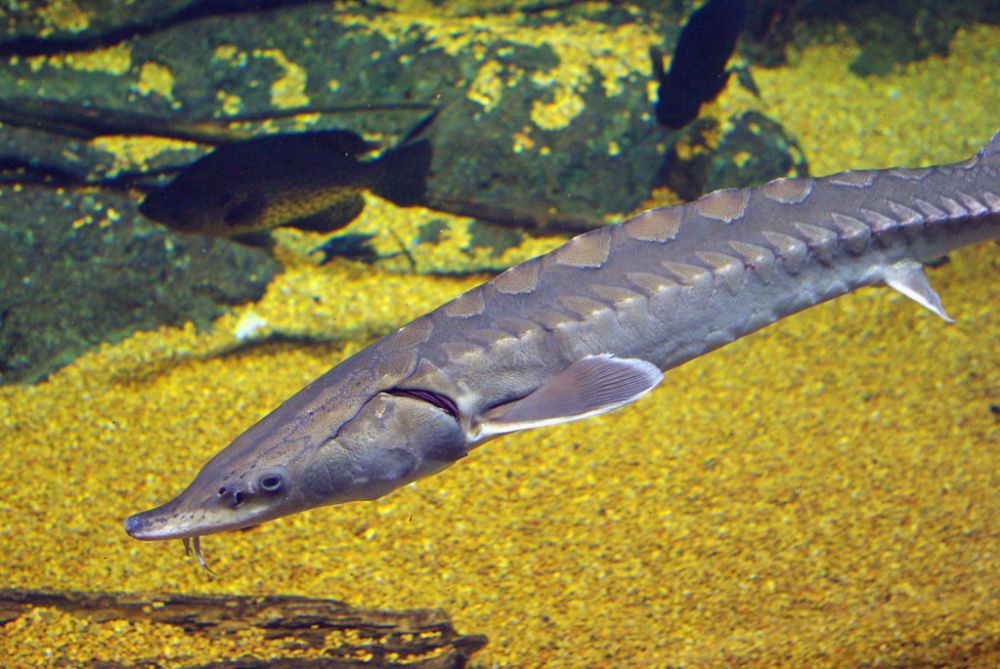
The Atlantic Sturgeon belongs to the Acipenseridae family. Its length can generally reach 3 m; its maximum length is 4.3 m. Its weight is between 150 and 200 kg; it can reach a maximum weight of 368 kg. It can live to 60 years and over. It only reproduces every 2 years. The maximum fertility rate is 3.75 million eggs. It is one of IUCN's protected species and fishing is highly regulated. It can be fished during the cool seasons. It has a snub nose, with four barbells in the front of his belly mouth. It carries five rows of bone plates on the back and sides of the body. The dorsal lobe of its caudal fin is longer than the ventral lobe. The skeleton of this bony fish is largely cartilaginous.
The Atlantic Sturgeon is a famous fish you can catch in Boulder.The Lahontan cutthroat trout
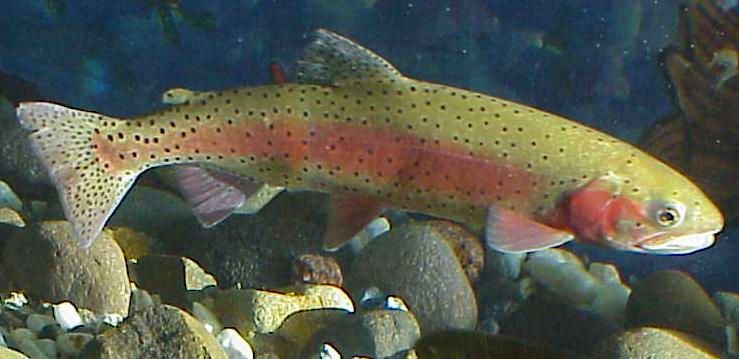
The Lahontan cutthroat trout belongs to the Salmonidae family. It can reach 1 m for 24 kg. It has a lifespan of less than 5 years. It breeds between February and July. The best time to catch it is between March and April. It is a quite large fish with a square tail to hunt prey and avoid predators. The coloring is green to greenish brown on the back, pale yellow with a pink lateral band on the sides and silver to white on the belly. Parr marks fade in mature fish. Spawning trout can be copper, red and orange, especially male. Large rounded spots, almost as black as ink, scatter little over the body, with less below the lateral line. Like other cutthroat trout, they have a distinct red to orange mark on their throats, but can be pale on lakes.
The Lahontan cutthroat trout is a famous fish you can catch in Boulder.Our fishing forecast of Boulder indicates the best time to go fishing in this city.
Our fishing forecast of Boulder indicates the best time to go fishing in this city.
Our fishing forecast of Boulder indicates the best time to go fishing in this city.
